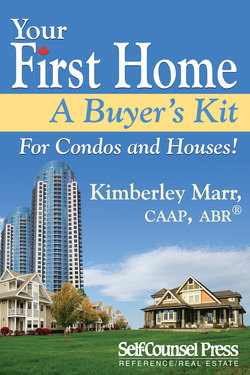Читать книгу Your First Home - Kimberley Marr - Страница 15
На сайте Литреса книга снята с продажи.
1.9 Variable or adjustable rate mortgage
ОглавлениеThe variable or adjustable rate mortgage is a little trickier. The Bank of Canada sets its overnight rate (i.e., the rate it lends to the banks) and the banks then add their spread and that ends up as the prime rate. When the Bank of Canada increases or decreases the rate that it lends, the banks usually follow suit with their prime rate, which in turn impacts variable rate mortgages. It is important to understand that not all banks or lenders use the term “prime rate” for their mortgages; some use terms such as “base rate” or “mortgage prime rate” which could have different definitions. Check the standard charge terms for the lender to determine if they actually use the terms the way you expect. Depending on the terms of the mortgage, this could affect you in a couple of ways:
1. The monthly amount you pay could change when the interest rate changes, making it more difficult to budget your monthly cash flow should rates increase.
2. The monthly mortgage amount remains fixed (does not change), but the percentage attributed towards interest and principal repayment changes. For example, if the interest rate increases, this reduces the amount you pay off each month toward the outstanding principal debt as more of your payment is applied to interest and less towards principal. What this also means is that your amortization period changes — it goes up, meaning it will take you longer to pay off the mortgage. However, if interest rates fall, this has a positive effect as the amount attributed to principal reduction is increased and the amortization period is shortened.
The major difference between fixed and variable or adjustable rate mortgages is the risk factor. You will need to consider whether or not you are more comfortable with a fixed monthly or biweekly payment. Or, whether or not you should take the risk of a variable or adjustable rate that may save you money, but may also cost you more money if rates rise. Normally, the interest rate for a variable rate mortgage is slightly lower.
Consideration needs to be given to where interest rates are at the time of this book’s printing because they are at affordable, low levels. Will interest rates drop much in the future? Who knows what will occur with rates. Conservative buyers often choose a fixed rate mortgage at these low-rate levels because they want the security and comfort of knowing that their monthly or biweekly mortgage payments will be the same over the term of their mortgage.
If you choose a variable rate mortgage, consider being qualified or approved for the higher fixed rate, just in case rates increase because you don’t want to be “house poor.” In other words, you don’t want to be in a situation where you are short of cash for discretionary items or have trouble meeting other financial obligations such as vehicle payments or credit card bills due to the fact that too large a portion of your income is being spent on home-related expenses (mortgage, property taxes, maintenance, and utilities).
Some lenders make it mandatory that you qualify for a higher fixed rate term. Be careful and budget conservatively in anticipation of a potential interest rate increase. Speak with a mortgage professional for the details and qualifying rules related to your situation.
